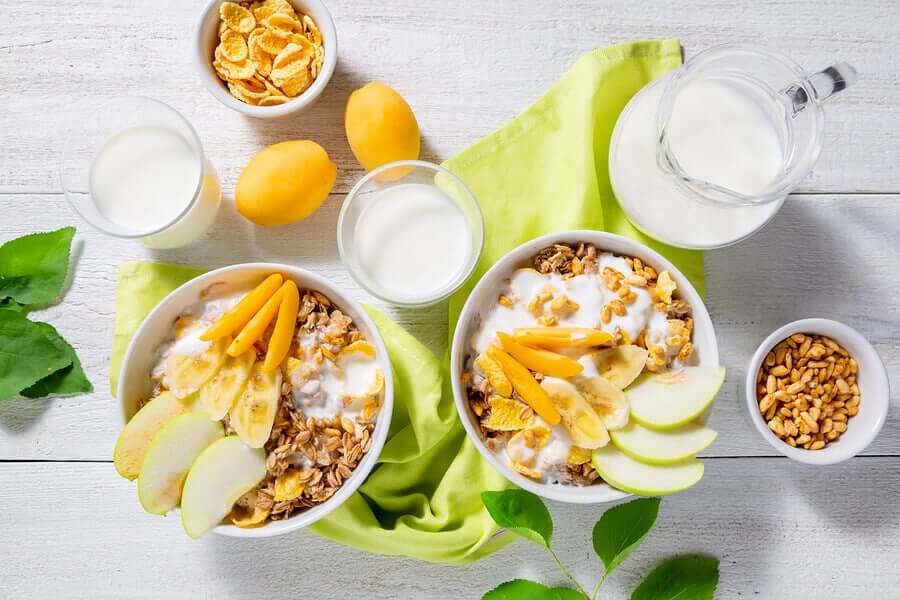Four Things to Avoid if You Have Colitis

Colitis is the inflammation of the large intestine, or the colon. It’s a very common disorder among people who live in crowded cities and are under high stress levels. If you suffer from the symptoms of colitis, you’ll be interested to know these four things you should avoid to avoid worsening your condition.
Food is an essential factor when it comes to treating the symptoms of colitis – both to recover from them and to avoid them altogether. According to MedlinePlus, the causes of this disease are mainly food poisoning, in addition to virus or bacterial infections, lack of blood flow, intestinal problems and Crohn’s disease, among others.
Symptoms of colitis
The source cited above details the following symptoms for this condition:
- Abdominal pain and swelling
- Bloody stool
- Chills and shaking
- Dehydration
- Diarrhea
- Fever
Visit this article: A Japanese technique for eliminating stress
What to avoid if you suffer from colitis
1-Certain foods

Avoiding certain foods is essential for making a full recovery from this condition and avoiding long-term damage to the colon. Fatty foods can trigger intestinal contractions and cause a negative reaction in your whole body.
Although the doctor will give you more details depending on the case, in general you should stay away from fried foods, fatty meats and fast foods if you suffer from colitis. It is preferable to opt for easily digestible foods, such as soups, purees and boiled meats, according to a medical publication by Intramed.
Likewise, it is often advised to avoid dairy products for a while after having suffered from this pathology. If you have intestinal problems, you should avoid irritating drinks such as tea and coffee. Instead, you can opt for drinks such as water with lemon or herbal infusions.
2-Stressful situations
Emotional disorders increase the activity and alter the function of your colon. These may be accompanied by diarrhea or constipation, which are primary symptoms of nervous colitis, according to a thesis presented at the Universidad de Ciencias y Artes de Chiapas.
It’s essential to manage stress well in your home or at work to keep your symptoms from getting worse. If you need help with this, don’t hesitate to consult a psychologist, psychiatrist, or gastroenterologist.
3-Leading a sedentary lifestyle

Sedentary people are more likely to present colitis, especially as a symptom of chronic diseases such as ulcerative colitis or Crohn’s disease, details a study published by Gastroenterology and Psychiatry (p. 89).
Therefore, according to researchers from the Universitat Autònoma de Barcelona, it’s highly recommended to practice sports daily to properly management stress and anxiety. It’s a good idea to walk, ride a bike, swim, or perform other activities, but be sure to be consistent about it.
See also: 6 types of obesity and their causes
4-Self-medication
Visit your doctor if you have any symptoms like abdominal swelling, pain, or changes in stools. As for the latter, excessive bowel movements – up to three per day is considered normal – are as alarming as constipation.
Avoid self-medications, as the treatment of colitis depends to a great extent on the cause that produces it. Therefore, if the drug isn’t the right one, not only will we be losing valuable time for recovery, but it’s even possible that complications may worsen.
Diet and foods that are suitable for colitis
While treating this condition according to the doctor’s indications, eat five or six small meals a day. It’s usually advised to follow a liquid diet, which may well involve consuming water, apple juice, broth, or natural jelly.
Here’s an example of a daily menu for a person suffering from colitis. Keep in mind, however, that the needs may vary from case to case.
Breakfast

A cup of skim milk, a few slices of toast, and a slice of ham or low-fat turkey is a great option. Another option could be low-fat plain yogurt with cereal. according to a study published in the Journal of Dairy Science, the prebiotics and probiotics it contains promote intestinal microbiota and, therefore, digestive health.
A third option could be a cup of tea and whole wheat toast with fresh cheese, preferably low in fat. If you want to have fruit with breakfast, the best choices are papaya, apple, pear, banana, peach, or melon. Avoid oranges, kiwi, strawberries, and guava, as they are very acidic and can slow digestion.
Lunch
Try grilled or baked chicken with a green salad, watercress, and raw spinach seasoned with a teaspoon of olive oil. You can have a slice of toasted whole grain bread as a side.
Dinner
Try pasta cooked with olive oil. As a second option, a cup of low-fat plain yogurt or a piece of fresh cheese with a spoonful of honey.
This is a sample diet for breakfast, lunch, and dinner, but you can also incorporate snacks between each meal so you don’t go so long without eating. For example:
- A cup of sugar-free fruit juice.
- A portion of fruit, such as a banana, apple, or pear.
- A cup of tea and two slices of whole grain toast.
Other recommendations for preventing and controlling the symptoms of colitis
- Drink at least two liters of water or natural fruit juice a day.
- Chew your food thoroughly. Dedicate a quiet time to your meal and have an after-dinner break of at least 15 minutes.
- Keep a fixed meal schedule and always try to go to the bathroom at the same time and without haste.
- Avoid using laxatives if you experience constipation, unless prescribed by your doctor.
If you follow these recommendations, lead a healthy lifestyle, and maintain a balanced diet, you can improve or prevent this condition. Change your habits and take care of your health!
All cited sources were thoroughly reviewed by our team to ensure their quality, reliability, currency, and validity. The bibliography of this article was considered reliable and of academic or scientific accuracy.
- L.C. Allgeyer, M.J. Miller, S.-Y. Lee. 2010. Sensory and microbiological quality of yogurt drinks with prebiotics and probiotics. Journal of Dairy Science.
https://doi.org/10.3168/jds.2009-2582.
(http://www.sciencedirect.com/science/article/pii/S0022030210004777) - Moya-Albiol, Luis; Salvador, Alicia. 2001. Efectos del ejercicio físico agudo sobre la respuesta psicofisiológica al estrés: papel modulador de la condición física. Universitat Autònoma de Barcelona. https://ddd.uab.cat/record/63157
- Carolina Barros; Maritza Bocic. 2016. PSICOPATOLOGÍA EN COLITIS ULCEROSA Y
ENFERMEDAD DE CROHN. Gastroenterología y Psiquiatría. http://revistagpu.cl/2016/GPU_marzo_2016_PDF/PSI_Psicopatologia.pdf - López León, Diana Paulina. 2014. Manual de colitis nerviosa para adolescentes de Ocozocoutla de Espinosa Chiapas. Universidad de Ciencias y Artes de Chiapas. https://repositorio.unicach.mx/handle/20.500.12114/310
- Diarrea bacteriana. 2009. Intramed. https://www.intramed.net/contenidover.asp?contenidoid=62710
- Colitis. MedlinePlus. https://medlineplus.gov/spanish/ency/article/001125.htm
This text is provided for informational purposes only and does not replace consultation with a professional. If in doubt, consult your specialist.








